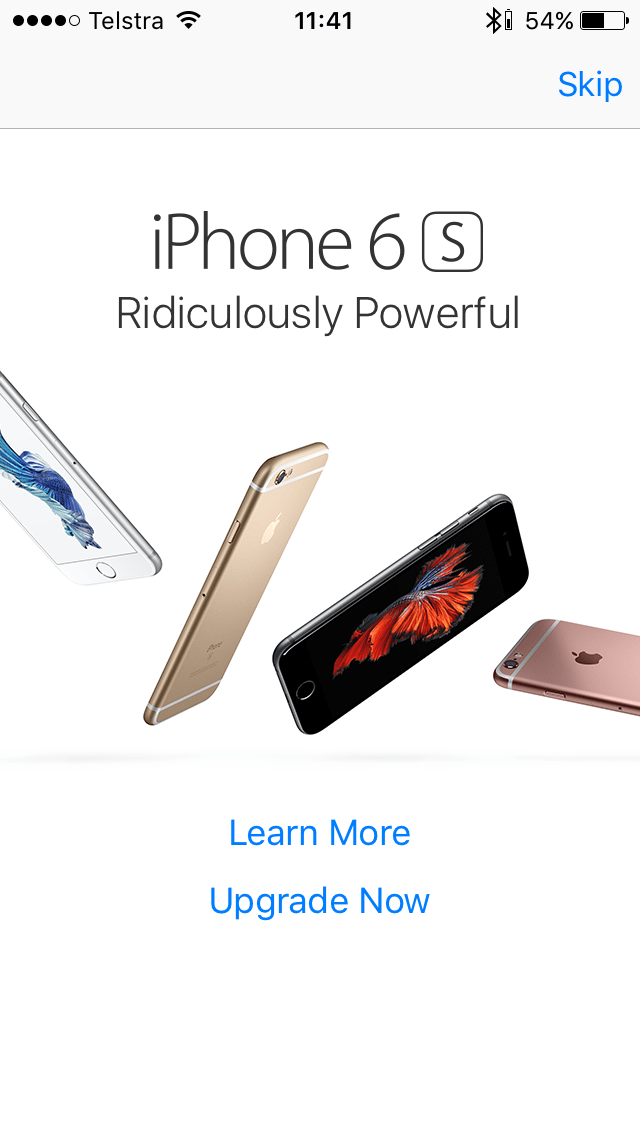
Likely in hopes of boosting its holiday sales, Apple has surprised a number of iPhone owners by displaying unsolicited pop-up ads within the App Store application that promote the iPhone 6s. The ads are full-screen interstitials, and appear on iPhones that are older than the iPhone 6, according to reports. The ad’s text, meanwhile, reads “iPhone 6s Ridiculously Powerful.”
Below an image of several, multi-colored iPhones, users are offered two choices: “Learn More” or “Upgrade Now.”
In order to bypass the ad, users have to hit the “Skip” button at the top to return to the App Store.
The reaction to the ads, first spotted by the blog Cult of Mac, has not been pleasant so far. Most users who are sharing the ads on social media, or discussing the problem on Reddit, don’t seem to think that Apple should be leveraging its own App Store application to deliver ads – especially those that are promoting its own products.
There’s some irony here as well, given that Apple introduced ad blocking capabilities with the release of the iOS 9 operating system, which allows web users the ability to better control how much advertising they’re exposed to when using their mobile devices, plus block other content that slows down browsing. The move was heralded as another example of how Apple puts the user experience first.
Pushing pop-up ads, however, seems to contradict that earlier position.
It’s worth pointing out this is not the first time Apple has used the App Store app in this way. In the past, Apple experimented with using the App Store’s search interface to push its own, editorialized search results for specific queries. For example, a search for “Maps” for a time wouldn’t return Google Maps first, but instead pointed to Apple’s own collection of mapping apps. And a search for “Music,” also around the same time last year, didn’t immediately return a list of streaming apps, but instead showed an ad for iTunes radio.
In other words, Apple has already proven that it’s not above leveraging the App Store app’s reach in order to promote its products when it deems necessary. And for it to be again trying the same thing with regard to the iPhone hints that the previous efforts must have seen positive results.
That being said, the new ad is a bit more aggressive than the others. While you could argue that, before, users who were searching for things like “maps” or “music” were possibly interested in what Apple had to offer on those fronts, the newer ads are being pushed to those who have simple launched the App Store app. They may or may not actually be in the market for a new device.
It’s unclear at this time how many users are being shown these ads, or if they’re only appearing in certain regions or markets. If Apple offers more information about the ads, we’ll update.

Comments
Post a Comment